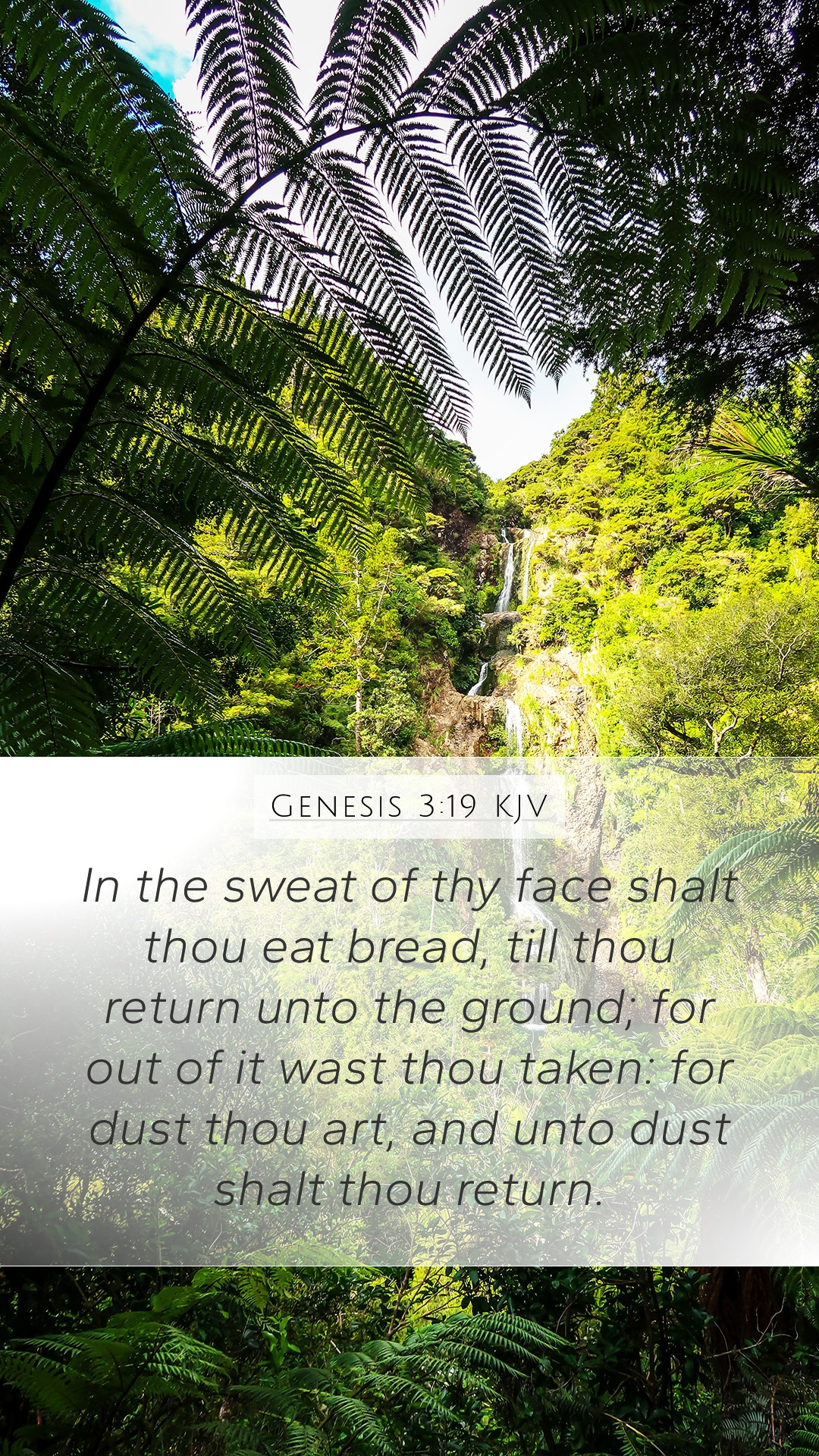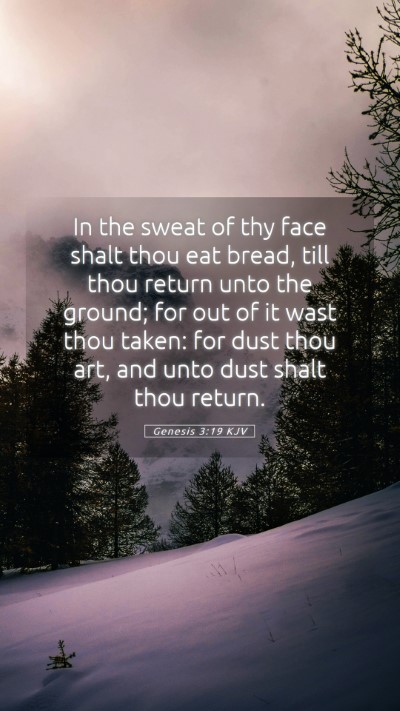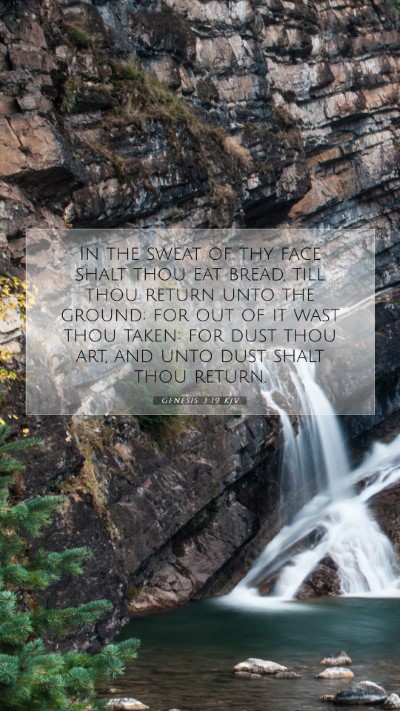Understanding Genesis 3:19
Bible Verse: “In the sweat of your face shall you eat bread, till you return unto the ground; for out of it were you taken: for dust you are, and unto dust shall you return.” - Genesis 3:19
Overview of Genesis 3:19
This verse forms part of the narrative following the fall of man, where God is outlining the consequences of Adam and Eve's disobedience. It introduces themes of labor, mortality, and the inherent connection between humanity and the earth. Understanding this passage involves delving into its implications on human life and existence.
Bible Verse Meanings
Commentators such as Matthew Henry, Albert Barnes, and Adam Clarke provide valuable insights into the meanings of this verse. Below are the distilled interpretations from these commentators:
- Matthew Henry: Henry emphasizes the hardships of human labor as a direct result of sin’s entrance into the world. He points out that the joyful life of ease has been replaced with toil and struggle, indicating that work is now a burden rather than a blessing.
- Albert Barnes: Barnes interprets “sweat” as a metaphor for the trials of earthly existence. He notes that the verse metaphorically links man's work to the earth itself, highlighting a cyclical relationship where man's sustenance is drawn from the ground which he will ultimately return to.
- Adam Clarke: Clarke elaborates on the idea of mortality, pointing out that “dust” symbolizes not only the physical body but also the frailty of human life. He highlights that returning to dust serves as a somber reminder of human mortality and the need for humility.
Biblical Exegesis of Genesis 3:19
The exegetical analysis of this passage reveals deep spiritual and practical lessons:
- The Nature of Work: This scripture exemplifies work as an essential part of human life, often accompanied by struggle and difficulty.
- Mortal Existence: The phrase “for dust you are” serves as a poignant reminder of our origins and the temporary nature of life, encouraging a humble perspective of self.
- Consequences of Sin: The labor and mortality experienced by humanity is a direct consequence of the Fall, reflecting the profound impact of disobedience on life.
Application of Genesis 3:19
For believers today, this verse prompts reflection on the nature of work, the reality of mortality, and the effects of sin. It calls for recognition of the hardships of labor as both a curse and a means of sustenance, urging individuals to find purpose within their toil.
Related Bible Cross References
- Ecclesiastes 3:19-20: Addresses the common fate of all humanity—returning to the earth.
- Genesis 2:7: Discusses the creation of man from dust, providing context for Genesis 3:19.
- Psalm 103:14: Emphasizes God's understanding of our mortality and frailty.
Conclusion
Genesis 3:19 serves as a significant verse within the tapestry of scripture, providing insight into the human condition and our relationship with both work and the divine. In the context of Bible study groups and online resources, this verse can yield rich discussions about the nature of our existence and the hope we have beyond the grave.


